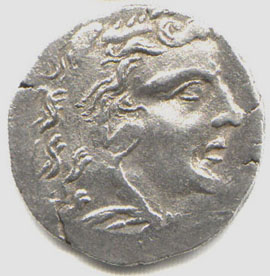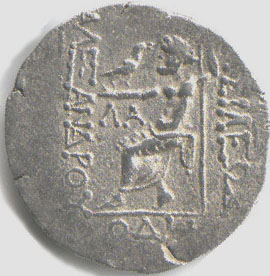| Mithridates King of Pontus |

|
 |
Mithridates VI, King of Pontus (120-63 BC), AR tetradrachm in the name of Alexander the Great.
Obv.: Alexander in lionskin of Herakles r., with the features of Mithridates of Pontus
Rev.: Zeus seated l. with eagle, in Gk. characters LAK before, ODE beneath, BASILEOS ALEXANDROU.